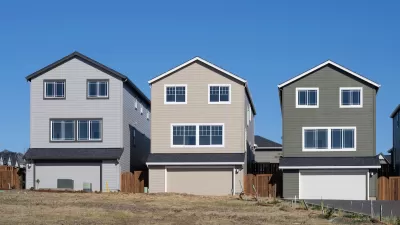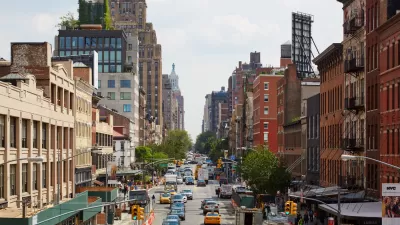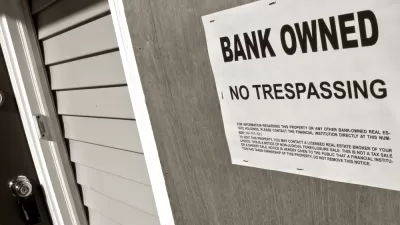A plan to eliminate a tax loophole on more than 10,500 vacant lots across New York City could help contribute to the mayor-elect's affordable housing goals.
Bill de Blasio is seeking to implement an idea he introduced in April: to increase the assessed value of vacant residential properties in order to "force owners either to put it to use and build housing or to sell it to those who will," reports Joe Anuta. "By increasing the cost of inactivity to prohibitive levels, the hope is that more land can be put back into use and much-needed housing can be built."
"It would drive the price of land down and increase development, to the extent the tax increases are significant," predicted Robert Knakal, chairman of Massey Knakal Realty Services. "The more expensive [vacant land becomes to hold], the less of it you will get—that's Economics 101."
"Some observers believe, however, that such a move carries big risks," notes Anuta. "For openers, it could discourage developers from patiently assembling large blocks of property needed for big developments by effectively driving up their property costs. That could, perversely enough, limit new housing production."
FULL STORY: De Blasio tells lot owners to put up or pay up

Planetizen Federal Action Tracker
A weekly monitor of how Trump’s orders and actions are impacting planners and planning in America.

Maui's Vacation Rental Debate Turns Ugly
Verbal attacks, misinformation campaigns and fistfights plague a high-stakes debate to convert thousands of vacation rentals into long-term housing.

Restaurant Patios Were a Pandemic Win — Why Were They so Hard to Keep?
Social distancing requirements and changes in travel patterns prompted cities to pilot new uses for street and sidewalk space. Then it got complicated.

In California Battle of Housing vs. Environment, Housing Just Won
A new state law significantly limits the power of CEQA, an environmental review law that served as a powerful tool for blocking new development.

Boulder Eliminates Parking Minimums Citywide
Officials estimate the cost of building a single underground parking space at up to $100,000.

Orange County, Florida Adopts Largest US “Sprawl Repair” Code
The ‘Orange Code’ seeks to rectify decades of sprawl-inducing, car-oriented development.
Urban Design for Planners 1: Software Tools
This six-course series explores essential urban design concepts using open source software and equips planners with the tools they need to participate fully in the urban design process.
Planning for Universal Design
Learn the tools for implementing Universal Design in planning regulations.
Heyer Gruel & Associates PA
JM Goldson LLC
Custer County Colorado
City of Camden Redevelopment Agency
City of Astoria
Transportation Research & Education Center (TREC) at Portland State University
Jefferson Parish Government
Camden Redevelopment Agency
City of Claremont





























